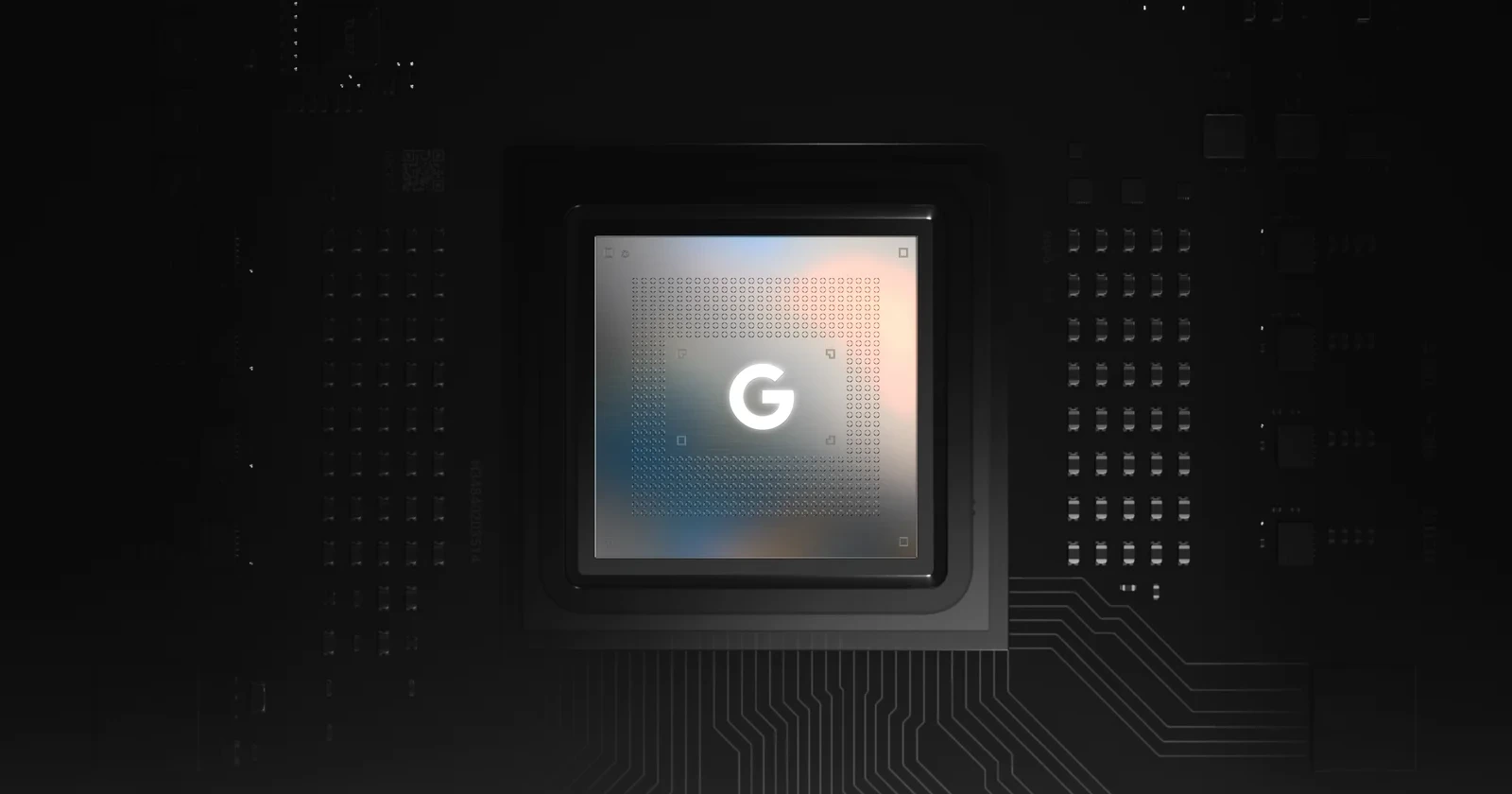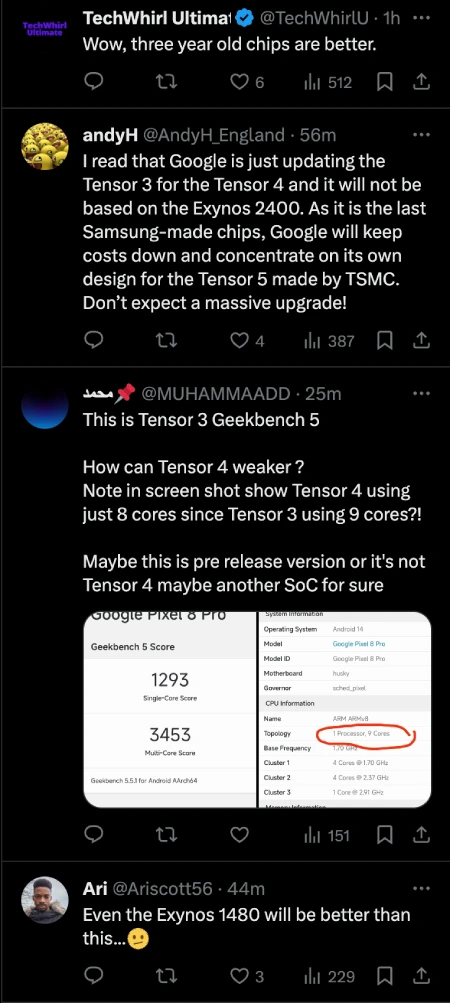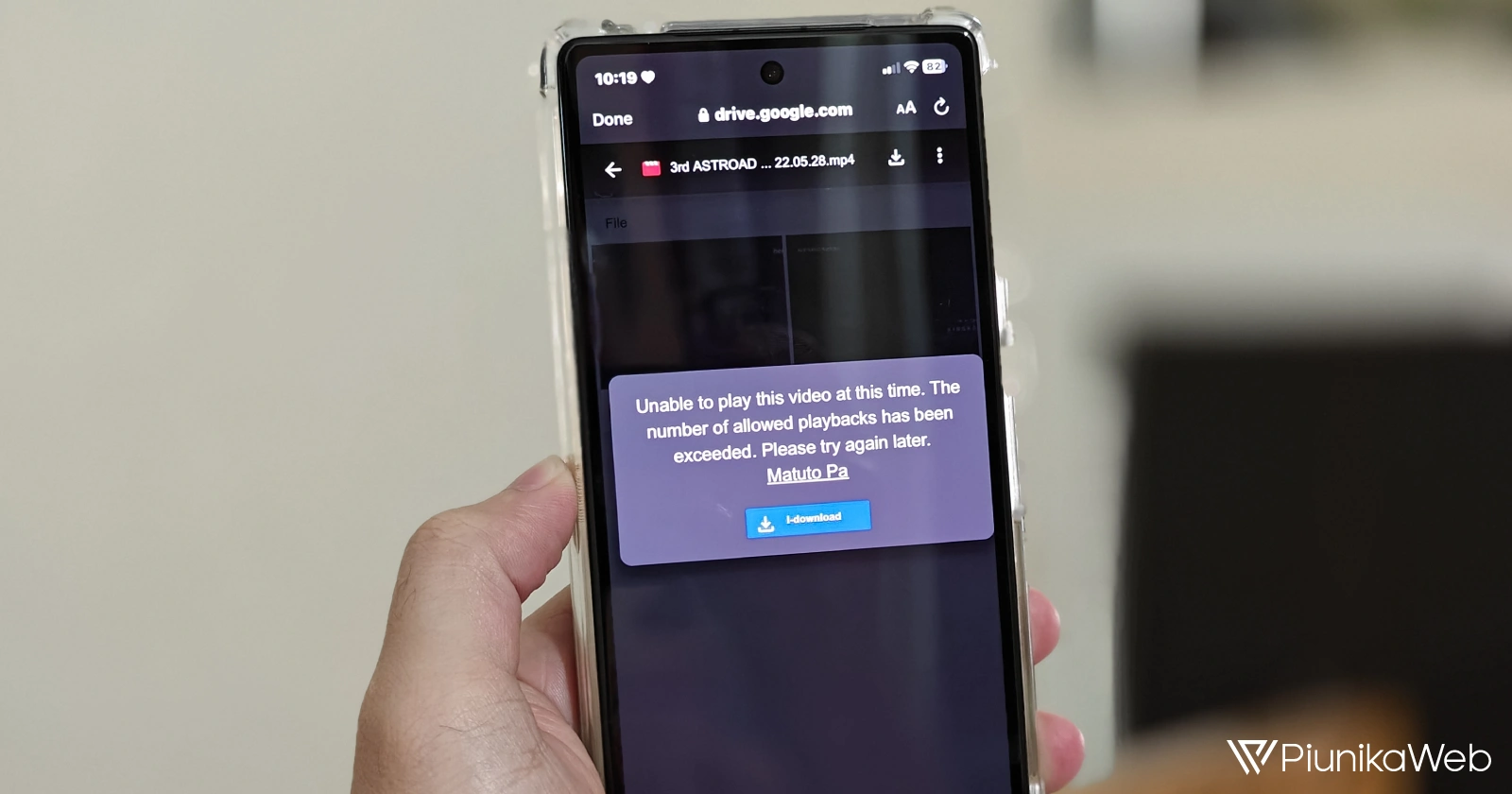Rumors about Google’s next-generation Tensor G4 chip have been swirling, and now a leaked Geekbench 5 score paints a concerning picture. Tipster @Tech_Reve (Revegnus) on X shared a screenshot allegedly showcasing the Tensor G4’s performance, and the results are underwhelming.
https://twitter.com/Tech_Reve/status/1755857614846800341
According to the leak, the Tensor G4 managed a single-core score of 1048 and a multi-core score of 2788. To put this in perspective, these scores don’t reflect a substantial improvement over existing flagships. This casts doubt on whether the Tensor G4 can compete with the likes of the current Snapdragon 8 Gen 3 or Apple’s A-series Bionic chips. I mean, just check out some of the reactions from users under the post:
I was able to access the alleged Tensor G4 test listing on Geekbench. Interestingly, Revegnus was also behind a similar tip last year around the Tensor G3. At that time, the initial scores also generated concern. However, in the final production Pixel 8 devices, the Tensor G3 showed improved performance.
That said, according to the CPU details in the listing, the ‘Tensor G4’ (alleged) features an ARM ARMv8 architecture with a tri-cluster configuration. It has a total of 8 cores. There are 4 Cortex-A520 cores clocked at 1.95 GHz, 3 Cortex-A720 cores running at 2.60 GHz, and a single high-performance Cortex-X4 core running at 3.10 GHz. This setup is geared towards balancing performance and energy efficiency.
In comparison, the Tensor G3 has 9 cores instead of the 8 cores present in the alleged Tensor G4. The G3 packs 1 Cortex-X3 core running at 2.91GHz, 4 Cortex-A715 cores at 2.37GHz, and 4 Cortex-A510 cores clocked at 1.70GHz.
This brings the authenticity of the leak to question. As with any leak, they should always be taken with a grain of salt, especially early in a product’s development cycle. Google might further optimize the Tensor G4 before its release with the Pixel 9 series and potentially even the Pixel Fold 2. It’s also worth pointing out that benchmark scores aren’t the sole indicator of real-world performance.
Nonetheless, this early glimpse at the Tensor G4’s potential has been met with understandable disappointment. Google’s in-house silicon efforts have emphasized AI and machine learning capabilities, but raw processing power still matters to many users. If these scores prove accurate, Google might find itself playing catch-up in the ever-competitive flagship smartphone market.




